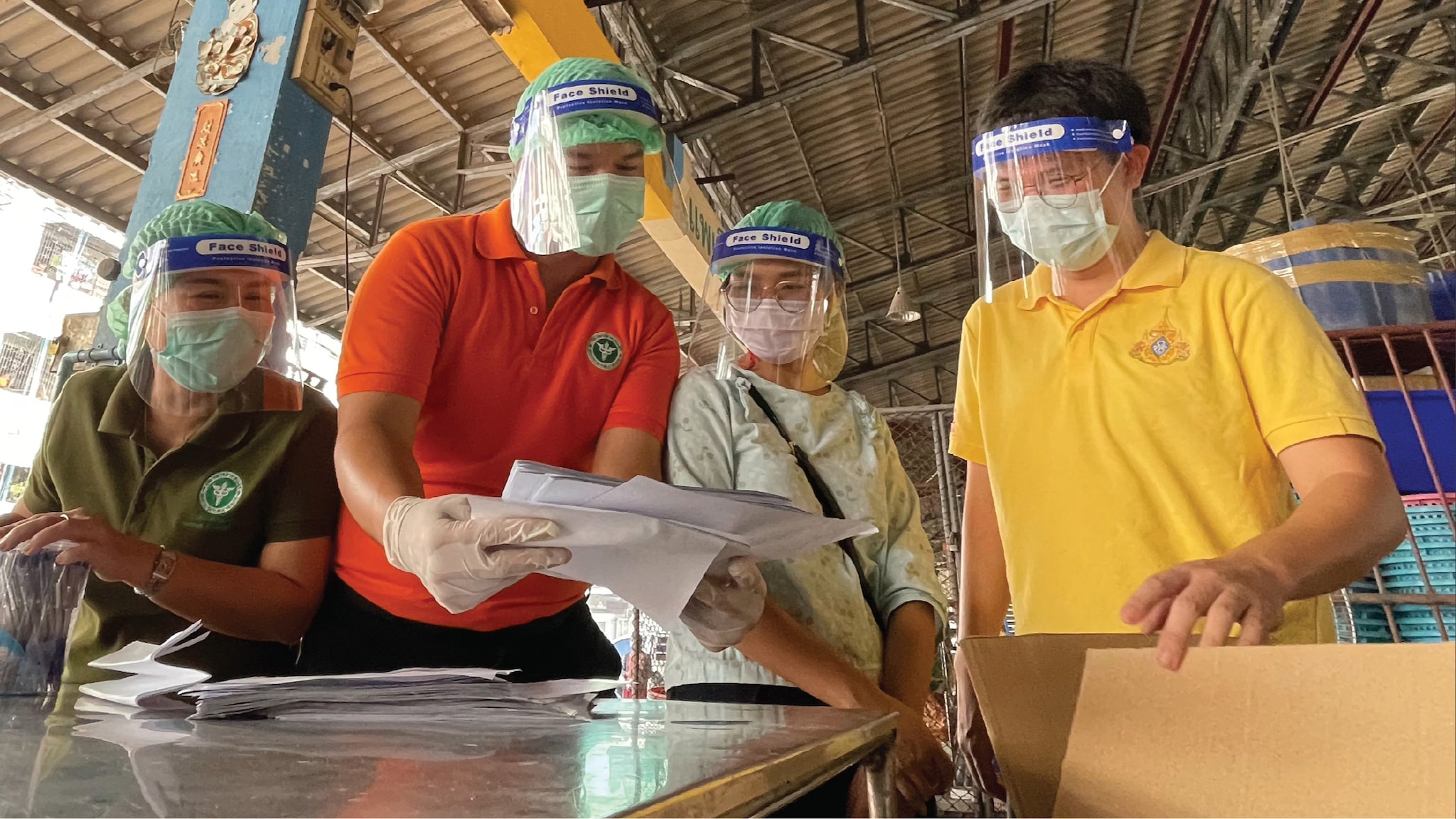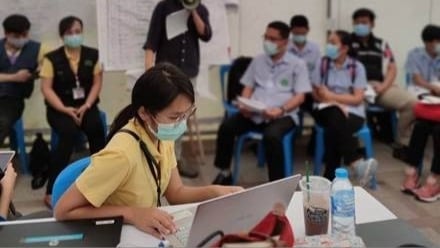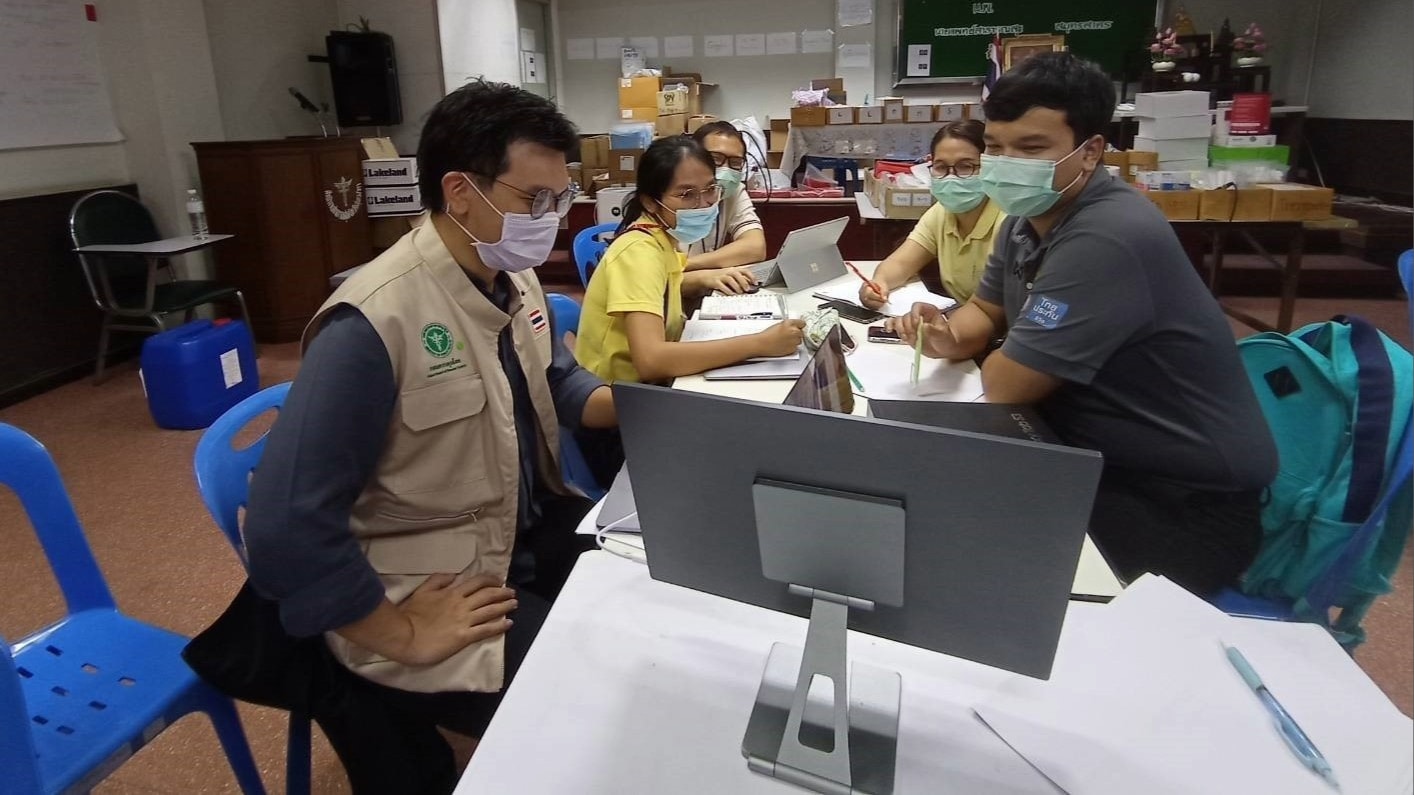At a glance
- People living with noncommunicable diseases (NCDs) are more likely to experience severe symptoms or die from COVID-19.
- When the Thailand Field Epidemiology Training Program (FETP) NCD team dealt with a COVID-19 outbreak in a Bangkok shrimp market, they made sure those with COVID-19 and chronic conditions received proper care.
- The program's impact on the COVID-19 response underscores its vital role in addressing public health challenges.
Managing a COVID-19 Outbreak at a Shrimp Market in Thailand

Every morning, Dr. Pitiphon Promduangsi, also known as Dr. Ern, walked into her 6 o'clock meeting with two goals: contain a deadly COVID-19 outbreak and keep her team motivated despite the ongoing challenges posed by COVID-19, noncommunicable diseases (NCDs), and health equity.
In January 2021, she became leader of the Surveillance Rapid Response Team, managing a COVID-19 outbreak at a shrimp market in Samutsakorn province near Bangkok. Dr. Ern, a graduate of Thailand's Field Epidemiology Training Program (FETP) NCD track, had been working on the COVID-19 response since Thailand confirmed its first case in mid-January 2020. The program trains field epidemiologists, or "disease detectives," to prevent, detect, and respond to public health threats. NCDs are a major disease threat in Thailand, estimated to cause 74% of all deaths. To address this burden, Thailand's FETP program began providing specialized training in NCD epidemiology and surveillance in 2017. This training prepared Thailand's FETP NCD graduates and residents to play a key role in the COVID-19 response because people living with NCDs are more likely to experience severe symptoms or die from COVID-19.
Dr. Ern's team managed a data reporting system that tracked new COVID-19 cases in the area around the shrimp market, conducted in-person contact tracing at local factories and in neighboring provinces, and provided health information to community members. She drew on her FETP training to teach hospital and factory workers how to conduct health screenings for employees at risk for COVID-19. The data they collected showed about 300-500 people near the shrimp market were testing positive for COVID-19 each day. Communication between hospitals, public health departments, and local employers was critical to finding the best approach for contact tracing and healthcare referrals.
Addressing inequity one person at a time

Health equity means ensuring opportunities for everyone to be as healthy as possible. To achieve health equity, barriers (such as social and economic differences) that prevent people and communities from achieving optimal health, must be removed.
NCDs, such as heart disease, diabetes, cancer, and chronic respiratory disease, when combined with COVID-19, make health inequities worse. Global estimates show that one in five people are at higher risk for severe COVID-19, mostly due to an underlying NCD. To maintain their health, many people living with NCDs need to be regularly monitored by a health practitioner or physician for treatment and management. However, many factory workers living and working in the vicinity of the shrimp market have difficulty accessing routine health care for NCDs. Further complicating access to care during the COVID-19 pandemic, up to 75% of countries reported service disruptions in NCD management and treatment.
While addressing the health inequities posed by NCDs and COVID-19 is a daunting task, Dr. Ern made sure that people with confirmed COVID-19 and NCDs were sent to field hospitals for health assessment and treatment.
Maintaining motivation

Volunteers from more than 10 provinces in Thailand played a major role in strengthening the COVID-19 response in Samutsakorn. Their work was critical to decreasing the number of COVID-19 cases and supporting Thailand's regional and national response. Dr. Ern drew on her FETP training in management and communication to keep the team motivated by showing how their contributions to an investigation of a COVID-19 outbreak at the shrimp market helped stop the spread of COVID-19 in Thailand.
Making an impact
The COVID-19 emergency response in Thailand demonstrates how the FETP NCD program prepares participants to respond to complicated health threats that worsen health and social disparities and threaten global health security. Addressing health disparities and improving health equity are key goals for CDC.
